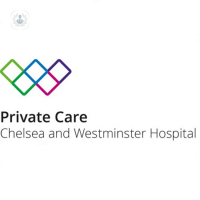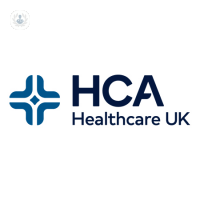There are a number of diseases which can affect the pituitary and hypothalamus. The hypothalamus is part of the brain and the pituitary gland is situated just underneath. Both are responsible for the production and regulation of various hormones. When either of these glands are affected, a range of conditions can occur.

What are the causes of diseases of the pituitary and hypothalamus?
The most common cause of a problem with the pituitary and hypothalamus is the growth of a benign tumour known as an adenoma. A benign tumour is non-cancerous, but when it grows it starts to push on the hypothalamus or pituitary gland it can cause problems with the production of hormones.
More rarely, problems in the pituitary and hypothalamus can be caused by:
- a condition present from birth (congenital conditions)
- blood loss
- anorexia
- the complications of brain surgery.
What are the most common types of pituitary and hypothalamus diseases?
Diseases of the pituitary and hypothalamus are rare, but the most common conditions include:
- Acromeglay – this involves having too much growth hormone in the body, leading to swollen hands and feet in adults and gigantism in children.
- Adult growth hormone deficiency – having too little growth hormone can cause loss of muscle and strength, fatigue, depression, and an increase in abdominal fat.
- Cushing’s disease – this condition involves the overproduction of the hormone cortisol. It is more commonly caused by taking steroids for arthritis, and can lead to weak muscles, weight gain, excessive hair growth, and mood swings.
- Diabetes insipidus – a problem with the production of the hormone vasopressin, hindering the ability of your kidneys to hold water. The main symptoms include urinating too often and thirstiness.
- Prolactinoma – an excessive production of the hormone prolactin, with symptoms including lowered sex drive, infertility, and irregular periods in women.
- Hypopituitarism – refers to the underproduction of two or more hormones in the pituitary glands, causing a wide range of symptoms, from tiredness and muscle weakness to dry skin, reduced fertility, and vision disturbance.
Overall, the range of symptoms that can be caused by issues in the pituitary gland and hypothalamus is very wide, due to the central function they play in regulating hormone production all over the body.
Which type of specialist treats diseases of the pituitary and hypothalamus?
An endocrinologist specialises in the diagnosis and treatment of hormone problems.
Generally, most conditions affecting the pituitary gland and hypothalamus can be treated. If the cause is a tumour, surgery will be considered. If not, it is possible to treat a hormone deficiency with hormone supplements.
To book a consultation with an endocrinologist, click here.
01-27-2014 05-17-2023Diseases of the pituitary and hypothalamus
Professor Gordana Prelevic - Endocrinology, diabetes & metabolism
Created on: 01-27-2014
Updated on: 05-17-2023
Edited by: Karolyn Judge
There are a number of diseases which can affect the pituitary and hypothalamus. The hypothalamus is part of the brain and the pituitary gland is situated just underneath. Both are responsible for the production and regulation of various hormones. When either of these glands are affected, a range of conditions can occur.

What are the causes of diseases of the pituitary and hypothalamus?
The most common cause of a problem with the pituitary and hypothalamus is the growth of a benign tumour known as an adenoma. A benign tumour is non-cancerous, but when it grows it starts to push on the hypothalamus or pituitary gland it can cause problems with the production of hormones.
More rarely, problems in the pituitary and hypothalamus can be caused by:
- a condition present from birth (congenital conditions)
- blood loss
- anorexia
- the complications of brain surgery.
What are the most common types of pituitary and hypothalamus diseases?
Diseases of the pituitary and hypothalamus are rare, but the most common conditions include:
- Acromeglay – this involves having too much growth hormone in the body, leading to swollen hands and feet in adults and gigantism in children.
- Adult growth hormone deficiency – having too little growth hormone can cause loss of muscle and strength, fatigue, depression, and an increase in abdominal fat.
- Cushing’s disease – this condition involves the overproduction of the hormone cortisol. It is more commonly caused by taking steroids for arthritis, and can lead to weak muscles, weight gain, excessive hair growth, and mood swings.
- Diabetes insipidus – a problem with the production of the hormone vasopressin, hindering the ability of your kidneys to hold water. The main symptoms include urinating too often and thirstiness.
- Prolactinoma – an excessive production of the hormone prolactin, with symptoms including lowered sex drive, infertility, and irregular periods in women.
- Hypopituitarism – refers to the underproduction of two or more hormones in the pituitary glands, causing a wide range of symptoms, from tiredness and muscle weakness to dry skin, reduced fertility, and vision disturbance.
Overall, the range of symptoms that can be caused by issues in the pituitary gland and hypothalamus is very wide, due to the central function they play in regulating hormone production all over the body.
Which type of specialist treats diseases of the pituitary and hypothalamus?
An endocrinologist specialises in the diagnosis and treatment of hormone problems.
Generally, most conditions affecting the pituitary gland and hypothalamus can be treated. If the cause is a tumour, surgery will be considered. If not, it is possible to treat a hormone deficiency with hormone supplements.
To book a consultation with an endocrinologist, click here.


What happens to children’s growth when the hypothalamus isn’t functioning right?
By Dr Helen Spoudeas
2024-11-20
The hypothalamus is a little known but fascinating and vital part of the human body. Experienced paediatric endocrinologist Dr Helen Spoudeas details what the hypothalamus is and why it’s critically important. She also highlights how hypothalamic dysfunction has the potential to affect many aspects of children’s lives. See more
Experts in Diseases of the pituitary and hypothalamus
-
Dr Jeannie Todd
Endocrinology, diabetes & metabolismExpert in:
- Adrenal gland disorders
- Thyroid disorders
- Diseases of the pituitary and hypothalamus
- Parathyroid gland
- Polycystic ovary syndrome (PCOS)
- Diabetes
-
Professor Franklin Joseph
Endocrinology, diabetes & metabolismExpert in:
- Menopause
- Perimenopause
- Testosterone replacement therapy
- Hypothyroidism
- Diseases of the pituitary and hypothalamus
- Diabetes
-
Dr Nemanja Stojanovic
Endocrinology, diabetes & metabolismExpert in:
- Thyroid disorders
- Diseases of the pituitary and hypothalamus
- Parathyroid gland
- Diabetes
- Adrenal gland disorders
- Erectile dysfunction
-
Professor Dushyant Sharma
Endocrinology, diabetes & metabolismExpert in:
- Diabetes
- Diseases of the pituitary and hypothalamus
- Thyroid disorders
- Hypogonadism
- Polycystic ovary syndrome (PCOS)
- Menopause
-
Dr Siva Sivappriyan
Endocrinology, diabetes & metabolismExpert in:
- Diabetes
- Thyroid
- Diseases of the pituitary and hypothalamus
- Parathyroid gland
- Obesity
- Hormone therapy
- See all

Private Care at Chelsea and Westminster Hospital
Private Care at Chelsea and Westminster Hospital
Chelsea and Westminster Hospital, 369 Fulham Rd.
No existe teléfono en el centro.
By using the telephone number provided by TOP DOCTORS, you automatically agree to let us use your phone number for statistical and commercial purposes. For further information, read our Privacy Policy
Top Doctors

HCA UK at The Shard
HCA UK at The Shard
32 St Thomas Street, SE1 9BS
No existe teléfono en el centro.
By using the telephone number provided by TOP DOCTORS, you automatically agree to let us use your phone number for statistical and commercial purposes. For further information, read our Privacy Policy
Top Doctors

LycaHealth Canary Wharf
LycaHealth Canary Wharf
1 Westferry Circus, Canary Wharf. E14 4HD
No existe teléfono en el centro.
By using the telephone number provided by TOP DOCTORS, you automatically agree to let us use your phone number for statistical and commercial purposes. For further information, read our Privacy Policy
Top Doctors
-
Private Care at Chelsea and Westminster Hospital
Chelsea and Westminster Hospital, 369 Fulham Rd., Central LondonExpert in:
- General Surgery
- Dermatology
- Paediatric Dermatology
- Paediatrics
- Preventive paediatrics
- Adult and paediatric services
-
HCA UK at The Shard
32 St Thomas Street, SE1 9BS, Central LondonExpert in:
- Vascular Surgery
- Head and neck cancer
- Breast Cancer
- Orthopaedic surgery
- Thoracic Surgery
- Cancer screening clinic
-
LycaHealth Canary Wharf
1 Westferry Circus, Canary Wharf. E14 4HD, Central LondonExpert in:
- Cardiology
- Dermatology
- Diagnostic Imaging
- Women’s health
- See all
- Most viewed diseases, medical tests, and treatments
- Hormone therapy
- Autoimmune diseases
- Nutrition
- Preconception care
- Osteoporosis
- Long Covid
- DEXA scan
- Stress
- Thyroid disorders
- Anti-ageing treatments








